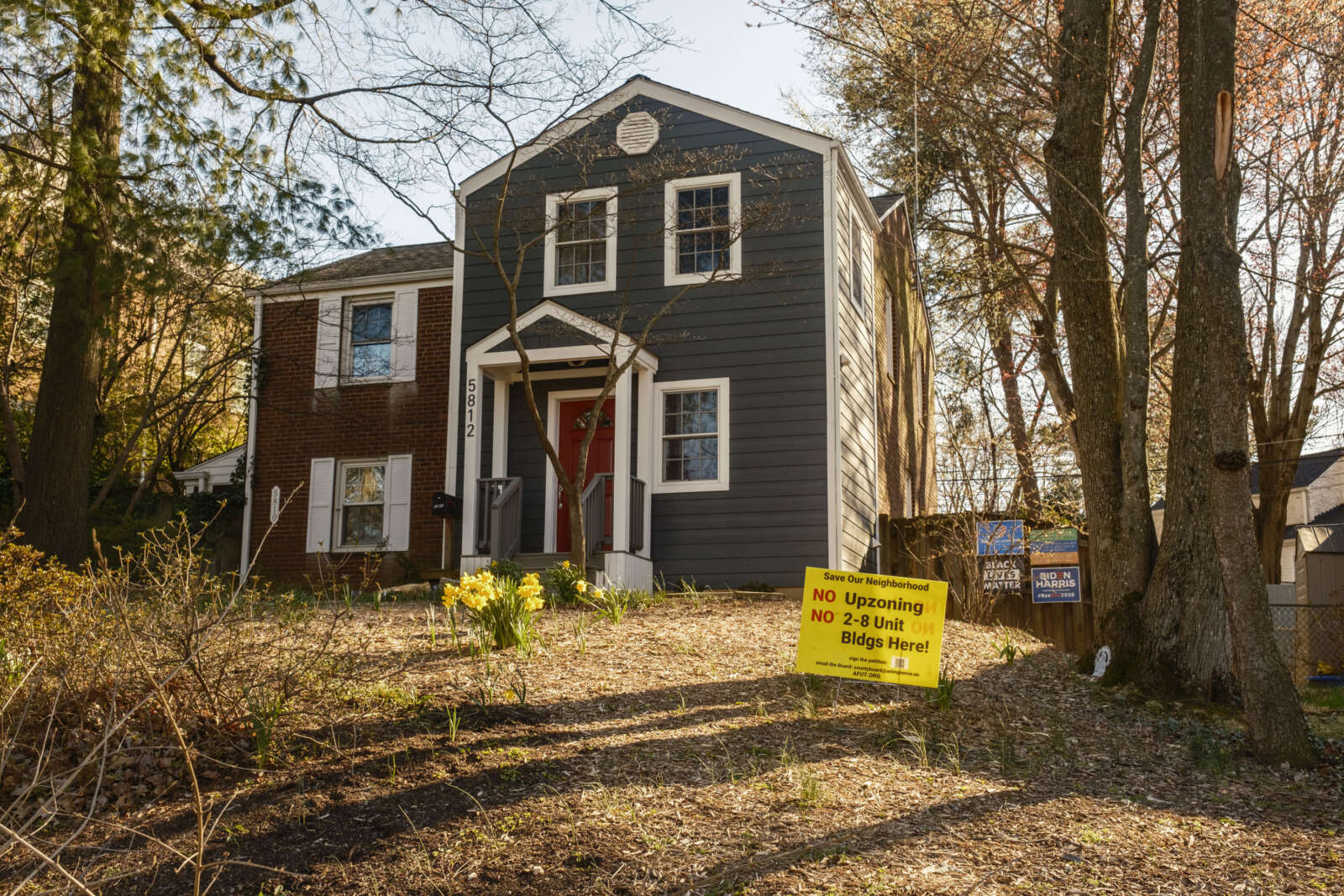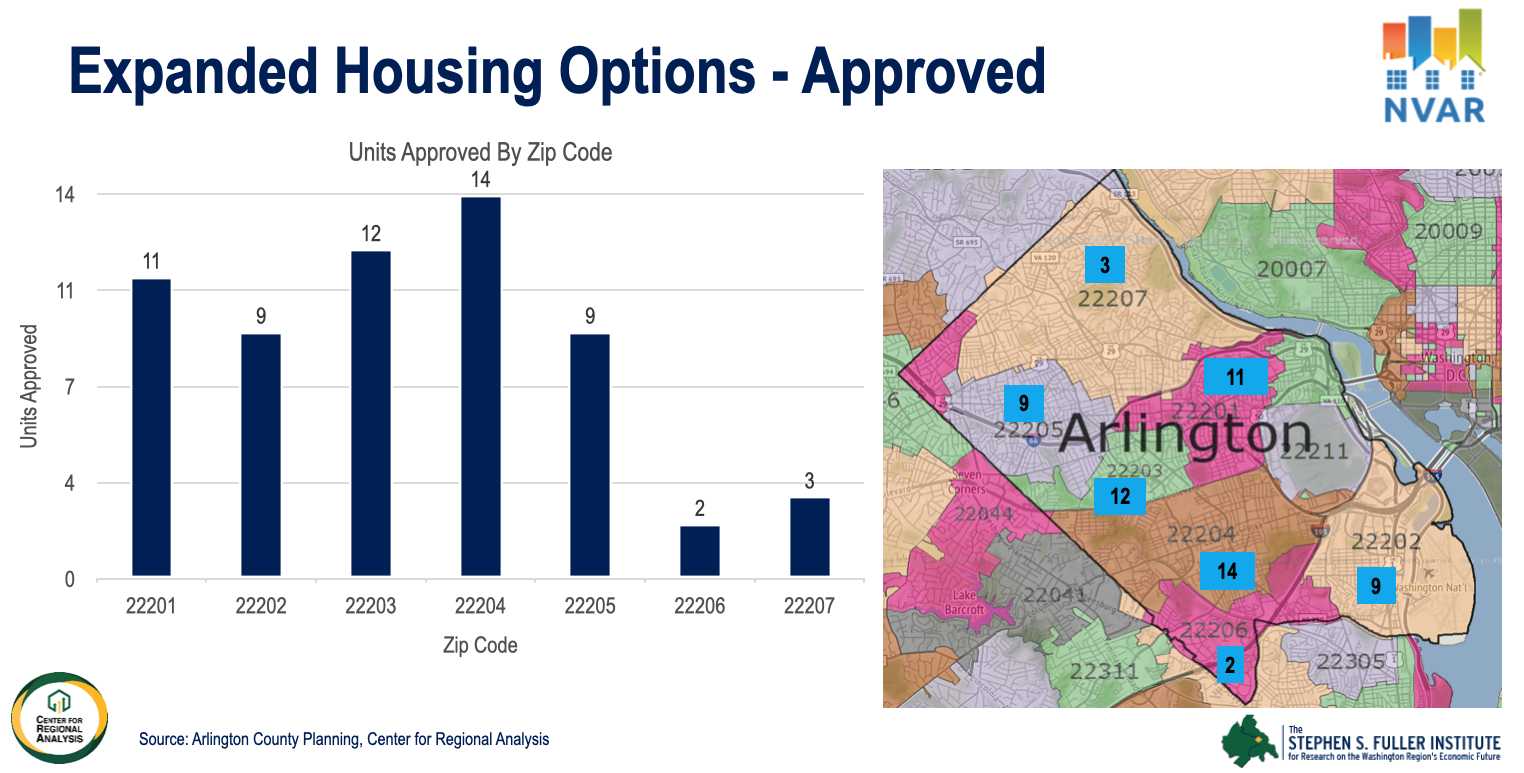
The resident lawsuit against Arlington County’s Missing Middle zoning ordinances can move forward.
Today (Thursday), retired Fairfax County Judge David Schell denied most of the county’s motions to dismiss the case, according to an attorney for the 10 residents who sued Arlington. He had put off making a decision for one month when the parties last convened in court in September.
The judge upheld their right to sue on six of seven charges they levied against Arlington County. The residents said the county ran afoul of state law when it allowed 2-6 unit homes, also known as Expanded Housing Options or EHOs, in areas formerly zoned exclusively for single-family homes.
Among other reasons, they say the county acted improperly because it did not commission studies to gauge their impact.
Only one charge will not move forward, we’re told. This charge asserted the county violated Freedom of Information laws in how the county disseminated information to Arlington County Board members on the day of their vote as well as to the community.
The court will now reconvene on Nov. 16 to set trial dates.
“Residents are seeking to hold the Arlington County Board accountable for failing to follow the law in its elimination of single-family zoning in Arlington,” Dan Creedon, a member of Neighbors for Neighborhoods Litigation Fund, which has provided financial support for the suit, said in a statement.
“The judge’s ruling recognizes that the plaintiffs — all Arlington homeowners — get the opportunity to make their case at trial,” he continued. “This is the democratic process at work.”
Arlingtonians for Our Sustainable Future (ASF), another group opposed to Arlington’s Missing Middle rezoning, called the decision “a major victory for residents.”
“Using our tax dollars to contest the residents, Arlington County’s attorneys tried to get this case dismissed before trial on multiple different grounds, but failed,” said ASF founder Peter Rousselot.
Arlington County had argued the 10 residents who sued did not have legal standing to do so, saying it is too soon to tell if they will be harmed and it is unlikely they will experience particular harms other residents will not.
In court last month, Arlington County Attorney MinhChau Corr said this case amounts to upset residents who disliked the decision and took to the court for relief. She said this tactic is a “subversion of our democratic process.”
Schell disagreed. He said it was “readily apparent” that the plaintiffs have standing to sue as owners of properties that have been rezoned from single-family to multi-family, per the release from Neighbors for Neighborhoods.
“He added that the plaintiffs don’t need to wait for multi-family buildings to be built in their neighborhoods to sue and that the lawsuit is a ‘quintessential’ use of declaratory judgment (declaring that EHO zoning is void) as a remedy,” the organization said.
To illustrate the fact that the residents are affected by Missing Middle, the judge “used an extreme analogy that if their homes had been rezoned from residential to garbage dumps, it would affect their interests,” according to Natalie Roy, a former Arlington County Board candidate who published highlights in her “EHO Watch” newsletter.
In a panel today organized by the Northern Virginia Association of Realtors, County Board member Matt de Ferranti told the moderator and listeners he will not comment on the court process.
De Ferranti said he is glad “we took the step” in allowing 2-6 unit homes in areas formerly zoned exclusively for single-family homes. Still, he seemed to sympathize with those who are worried about changes to the neighborhood if a sixplex moves in.
“If you… bought in Fairlington and you spent your entire life working to buy a single family detached home, and then you hear that next door to you where you bought, which is your greatest financial asset, a sixplex could be coming in, that is reasonable concern,” he said.
He expressed confidence things would smooth over as more people recognize the changes will be modest.
“The more that people realize that… this is not widespread in every neighborhood, you’re not seeing four sixplexes on your street, the more that people see that this is a mid- to long-term effort to add supply — in addition to helping some in the short term — I think they’re going to adjust their thinking,” de Ferranti said.
He pushed back against the notion that County Board members are “in the pockets” of developers, as Missing Middle opponents have sometimes charged.
“There’s some who feel that that we’re doing this because we somehow are beholden to developers, and I think that’s a simplistic way of looking at it,” he said. “It’s not accurate first… We do not have enough money in Arlington to help everyone we want buy a home and so we have to let the market shift to be more flexible.”
The status of the lawsuit may impact how many people file permits, according to Charles Taylor, the acquisitions manager for Arlington-based developer Classic Cottages, which has five EHO permits in-hand. He noted the initial flurry of applications possibly trailed off due to the lawsuit.
“I would imagine there are a lot of people who are kind of waiting to see what happens with the litigation,” he said during the Northern Virginia Association of Realtors webinar.
De Ferranti cautioned against focusing too much on concern about six-plexes. Most permits are for these buildings in denser neighborhoods, however according to Terry Clower, a professor of public policy for George Mason University.
Clower provided statistics on the new permits during the webinar, noting the next most popular are duplexes and triplexes.
Overall, 14 permits have been approved and 17 rejected, though those may be modified and resubmitted, he said.
It takes the county an average of 68 days to approve an EHO permit. The fastest was 40 days and the longest 101, which Clower said he considers “pretty reasonable.”


